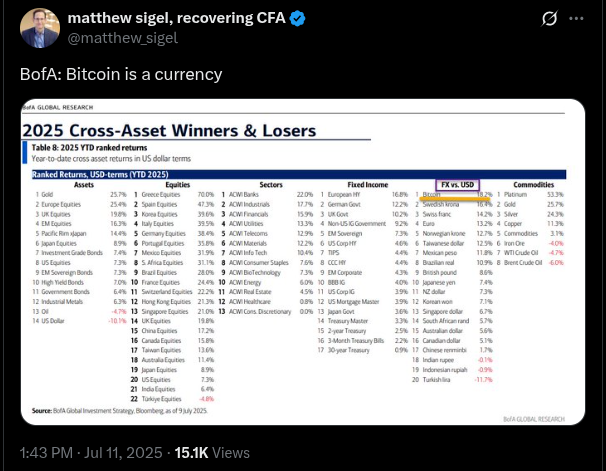
Bank of America reportedly classifies Bitcoin as "FX"
VanEck’s Head of Research, Matthew Sigel, recently pointed out that Bank of America had listed Bitcoin under the FX (foreign exchange) category in its latest report on asset class performance. He shared a screenshot on X showing BTC grouped with foreign currencies.
To be honest, I couldn’t find any public Bank of America sources confirming this classification. And it does seem questionable. The same screenshot includes other categories used by BofA - such as Assets and Commodities - that arguably make more sense for Bitcoin. It’s especially odd coming from a bank, of all institutions. You’d think a bank would have a clear understanding of what qualifies as a currency and what doesn’t.
If Sigel’s screenshot is real (which is very possible - he likely has access to BofA’s paid reports, unlike most of us), there may be a simple explanation: BofA likely measured asset performance based on prices one year ago, at which point Bitcoin was still legal tender in El Salvador. They might’ve kept it in the FX category just for consistency with the report’s starting point.
But if there’s more to it, it raises a red flag. In many countries, foreign currency transactions are subject to strict regulation. And classifying Bitcoin as a “foreign currency” could be a convenient way to impose new restrictions on it. Fortunately, since El Salvador dropped the requirement for businesses to accept BTC as legal tender, there’s no longer any strong legal basis for calling Bitcoin a currency. In most places, it remains an asset you’re free to use as you see fit.
And if you want to swap your Bitcoin for any of over 10,000 other crypto assets - no registration, best rates - head over to rabbit.io.













